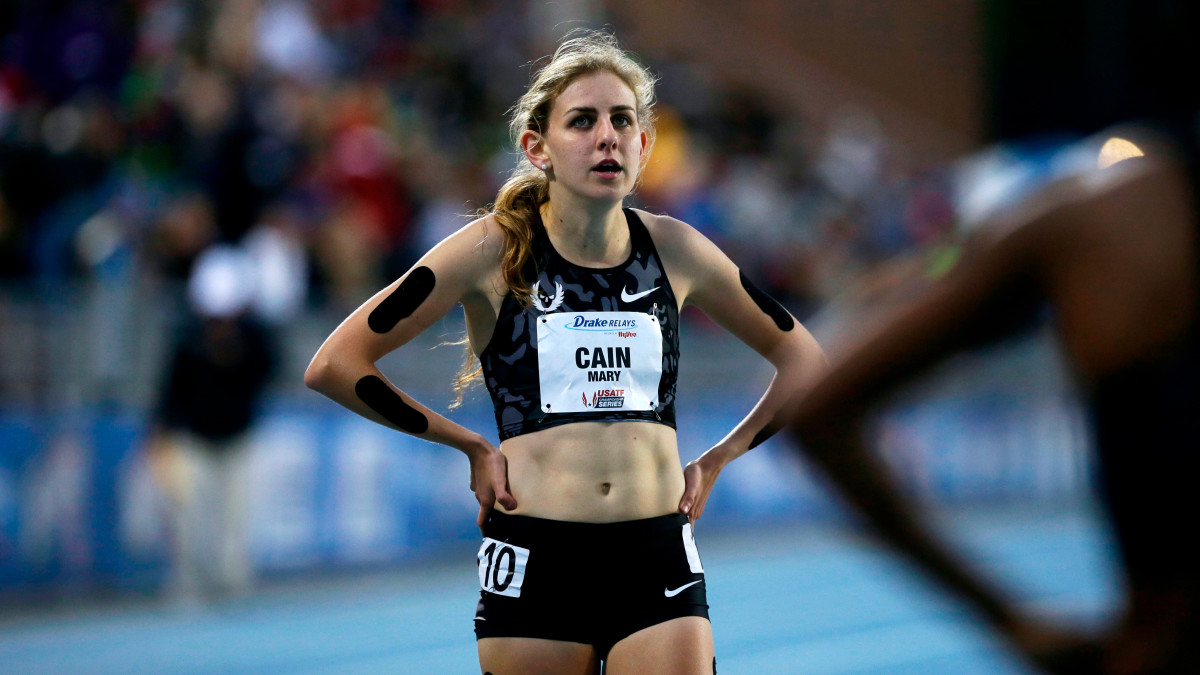Nike: Friend or Foe?
By Marta Jantzi
Nike is what I see, staring down at my spikes as I step onto the track runway. Nike is what I see on the bibs of all of my competitors in front of me. Nike is what I see on all the raincoats worn by my teammates who are huddled together under a tent, sporting the, you guessed it, Nike logo.
Nike is the god of everything track and field related, and growing up in Oregon, home of TrackTown USA, accentuates it even more. Competitive track and field revolves around Nike, and there is just no way to avoid it. As someone who was fully immersed in this culture, I was sucked into the obsession with Nike. I, along with all of my teammates, would dress from head to toe in Nike. Not only were we sponsored by Nike – and repping that curved check mark – it was something we were proud of. Our goal was to look exactly like the Nike poster child.
Nike is put on such a pedestal not just because it is a part of our culture, part of being an Oregonian, but it is something Nike has conditioned us to do. We are shown propaganda that tells us to “just do it” and bombarded with commercials featuring the faces of influential athletes like Colin Kaepernick telling us to “dream crazy.” As athletes who are in love with this company, we eat it up.
“Believe in something, even if it means sacrificing everything,” Kaepernick said. Well, if you’re following the news, you know Nike has taken this quite literally. They sacrificed the integrity of their brand and traded it for a coach who mistreats his female athletes. Nike promotes themselves as a company who supports any of their customers, but when you peel back some of their layers, we see that the treatment of their athletes is actually abysmal.
Mary Cain was one of the fastest distance runners in the world, until she joined the Oregon Project, an elite group of runners coached by Alberto Salazar. On Nov. 7, Cain released a video with The New York Times titled “I was the fastest girl in America, until I joined Nike.” In this video Cain goes into extreme detail of how her male coaches and especially Salazar, the head coach, would push her to be thinner and thinner, saying she would not be a good enough runner until she was under a certain weight.

The fact that Nike is employing coaches who are encouraging eating disorders, instead of promoting a healthy lifestyle is despicable. Nike tells us to dream crazy, but refuses to let their female athletes live up to their potential. Nike tells us to believe in ourselves, but hire coaches who put the scale on a pedestal.
I used to view Nike as this amazing company who not only put out great athletic gear, but as a company who I could look up to. Nike’s reputation has definitely been muddied in my eyes, but there’s something important to be learned from this scandal, a refocusing of what Nike means to me.
I am a female collegiate athlete, and every time I lace up my Nike shoes, or put on my Nike headband, I am not going to think about how Nike has treated their female athletes. Instead, I am going to think of all of the powerful women who have proven that their strengths are greater than their weaknesses. I am going to wear my Nike gear proudly, but not to promote the company, but to promote the strength of my fellow female athletes.
Though we don’t see it in the coaching of Salazar, luckily there are many positive examples of coaches who help improve the lives of their athletes. Grace Litwiller is a student at Hesston who ran cross country in high school. Litwiller was not only appalled when hearing about the abuse going on in Nike relating to Cain, but it made her realize how positive of an influence her coach was for her.
“My coach was very concerned with our health, but it was making sure that we were eating enough to be nourished for our workouts,” Litwiller said. “Having strong and healthy, not thin, athletes was his priority.”
There is a lot that we can do towards letting it be known that we are upset about how Nikes female athletes are being treated. Next time you go shopping, instead of buying Nike, buy from a different company who does support their female athletes. When someone asks you about your thoughts on the subject, let them be known. Stay updated on the subject, and let the world know that Nike is not really who we thought they were.




